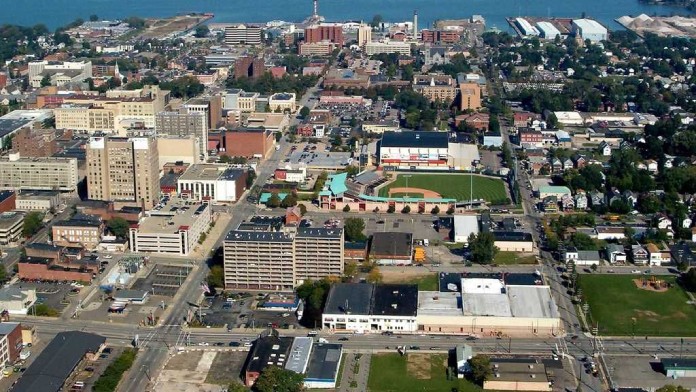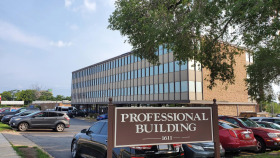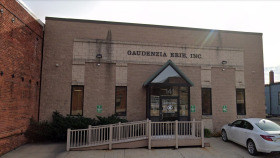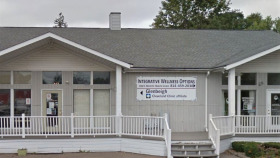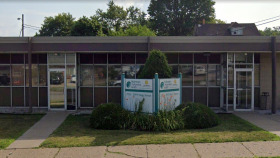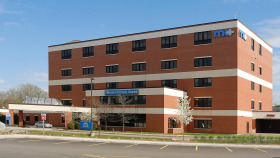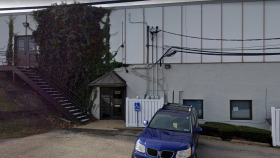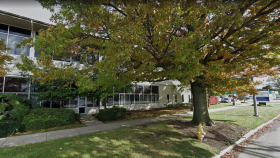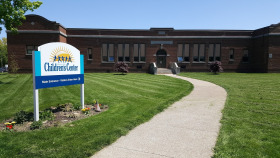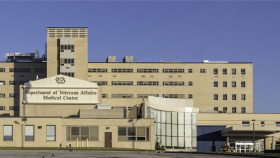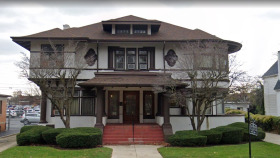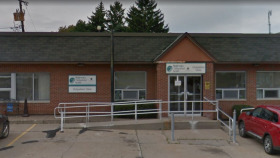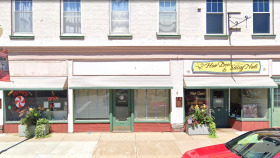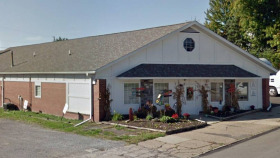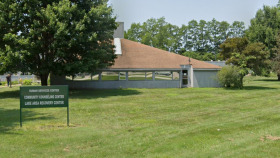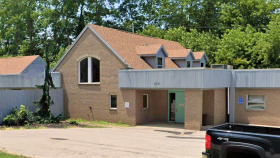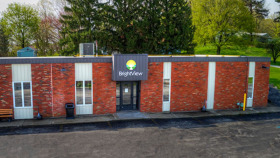Drug and Alcohol Misuse Statistics in Erie, PA
Recent statistics indicate there is a rise in drug concerns in Erie, but support systems are available to help meet these challenges. Check out the following:3,4
Erie saw overdose incidents increase by 196% and overdose deaths increase by 400% from 2019 to 2020.
In the first 6 months of 2021, Erie experienced a 97% increase in overdose victims.
Erie, PA offers 15 free or sliding-scale treatment programs and 2 detox centers.
90 fatal overdoses were reported in Erie County in 2020.
Levels of Care for Rehabs in Pennsylvania
Several levels of substance abuse care are available to effectively meet each Pennsylvanian’s recovery needs.
Alcohol and Drug Detoxification
Detox is the process of safely removing drugs or alcohol from your system. This occurs in a supervised setting, such as a hospital or inpatient rehab, so professionals can comfortably manage your withdrawal symptoms.
Inpatient Care
Residential or inpatient treatment involves living at a rehab facility under 24/7 supervision and care. Treatment services usually include individual and group therapy, nutritional counseling, experiential therapies, and medication.
Partial Hospitalization Programs (PHPs)
PHPs allow you to live at home while receiving addiction treatment at a hospital. Treatment methods may be similar to inpatient rehab, but you can return home during non-treatment hours.
Intensive Outpatient Programs (IOPs)
A step down from a PHP, IOPs allow you to attend a few hours of counseling each week, spread out over several days. You can spend the rest of your time at home, working, or fulfilling other obligations.
Standard Outpatient
As the least intensive treatment option, standard outpatient care involves just one to two hours of treatment per week. Because it has the least oversight and supervision, this level of treatment is typically appropriate for highly motivated people who have a strong support system.
Relapse Prevention
Relapse Prevention, also known as aftercare, begins when you complete a Pennsylvania rehab program. It includes ongoing support and encouragement through 12-step groups, non-12-step groups like SMART Recovery, ongoing therapy, sober living homes, and more. Aftercare is an important part of relapse prevention.
How to Pay for Addiction Treatment in Erie, Pennsylvania
Private Insurance
Insurance providers must cover substance abuse and mental health treatment services to some extent. However, specific coverage varies by plan, so Pennsylvania residents must contact their providers to confirm how much and which treatments are covered by their plan.
Pennsylvania Medicaid
Pennsylvania’s Medicaid program, Medical Assistance (MA), provides health insurance to low-income residents. It covers treatment services like inpatient drug rehab and outpatient substance abuse treatment. To qualify, residents typically are required to provide proof of income. Additionally, to use MA to pay for rehab, the facility must accept MA as a method of payment.
Pennsylvania Medicare
Pennsylvania Medicare is a federal program providing healthcare coverage to residents over the age of 65 as well as those with certain health conditions or disabilities. Pennsylvanians can use Medicare to cover the cost of drug addiction treatment services, including rehab. However, not all rehabs accept Medicare insurance.
TRICARE in Pennsylvania
Pennsylvania TRICARE (East region) is a government program that provides health insurance coverage for military personnel, veterans, and their families. TRICARE coverage includes addiction treatment services; however, specific coverage varies by plan.
Sliding Scale Rehabs
Sliding scale rehabs charge only what a resident can reasonably afford to pay, based on their income. To qualify for a sliding scale rehab in Pennsylvania, residents must provide proof of income.
IHS-Funded Drug Rehabs
Drug rehabs funded by the Indian Health Service (IHS) provide free addiction treatment to Alaskan Natives and Native Americans.
Visiting Erie, PA and Getting Around
 For those spending time in Erie for drug treatment or visiting a loved one in treatment, here are a few travel tips.
For those spending time in Erie for drug treatment or visiting a loved one in treatment, here are a few travel tips.
- The Erie Metropolitan Transit Authority operates 28 fixed bus routes throughout Erie County.
- A free trolley is available for exploring downtown Erie, PA.
- Erie is serviced by the Amtrak railroad station located inside the historic Union Station downtown.
- Boaters traveling to Erie by water can temporarily dock their boats in public marinas for overnight stays.
- Popular Erie tourist sites include the Erie Maritime Museum, Waldameer amusement park, Port Erie Bicentennial Tower, and Old Presque Isle Light.
- Open year-round, Presque Isle State Park offers outdoor activities including hiking, boating, fishing, and ice skating.
- For nightlife, the Boardwalk Complex Downtown is the go-to spot in Erie.
- People who live in Erie generally consider the southeast part of the city to be the safest.
Pennsylvania Alcohol and Drug Laws
Pennsylvania lawmakers have enacted the following policies related to substance use, treatment, and overdoses:1,2,3,4
Law Enforcement Treatment Initiative: LETI allows residents of participating Pennsylvania counties to contact law enforcement for help in identifying a rehab facility—without the threat of arrest. The initiative also allows law enforcement officers to guide individuals to treatment rather than divert them into the criminal justice system.
Good Samaritan Law: This law offers legal protection for certain drug crimes to Pennsylvania residents who seek medical attention or administer naloxone during a drug-related overdose. The law is designed to encourage Pennsylvanians to call for help by removing the threat of arrest for drug-related crimes. To receive immunity, Pennsylvanians must report the incident to emergency officials, give authorities identifying information, and stay with the overdose patient until first responders arrive. The law does not provide protection for crimes of delivery or distribution of drugs.
Naloxone Standing Order: This order allows pharmacists to dispense naloxone without a prescription.
Marijuana Laws: In Pennsylvania, marijuana is illegal for recreational use. Residents can apply for a medical marijuana card if they have a qualifying medical condition. Qualified patients can carry a 30-day supply of marijuana in a non-smokable form. Illegal possession of marijuana can lead to a 30-day imprisonment and a $500 fine. If the illegal possession is for more than 30 grams of marijuana, the penalties can include up to a year in prison and a $5,000 fine.
Resources
- Overview. (n.d.). Pennsylvania Drug Threat Assessment. Retrieved September 23, 2022, from https://www.justice.gov/archive/ndic/pubs0/670/overview.htm
- Palattella, E., & Flowers, K. (2022, May 13). 25 indicted in Erie federal court, charged with dealing cocaine, fentanyl, meth. Erie Times-News. https://www.goerie.com/story/news/crime/2022/05/13/fentanyl-cocaine-and-meth-25-indicted-in-erie-federal-case-paul-sellers/65355140007/
- Hahn, T. (2021, February 21). Erie County drug use: Aid efforts ongoing; city sees rise in overdose cases, deaths in 2020. Erie Times-News. https://www.goerie.com/story/news/local/2021/02/21/drug-deaths-erie-county-sees-rise-fatal-overdoses-2020-aid-ongoing/4386439001/
- City of erie comprehensive opioid, stimulant, and substance abuse site-based program. (n.d.). Bureau of Justice Assistance. Retrieved September 23, 2022, from https://bja.ojp.gov/funding/awards/15pbja-21-gg-04599-coap

